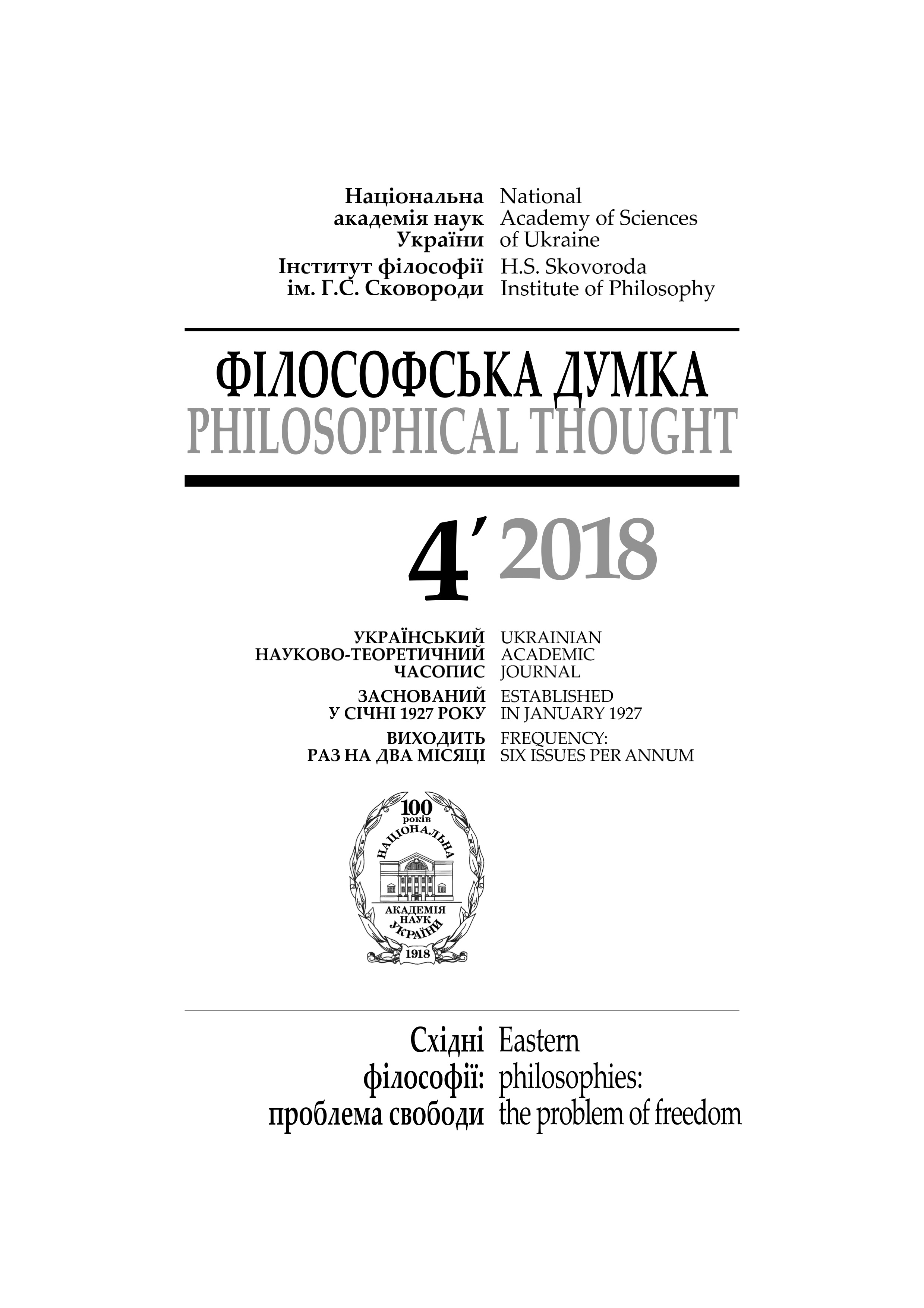Present Definitions of Mystics and Mysticism: Problem of Community of Research Coordinates
PHILOSOPHY OF RELIGION
Keywords:
mystics, mysticism, mystical experience, religious practice, transcendental reality, sacred, esotericAbstract
The article analyzes the series modern definitions of the terms “mystics” and “mysticism” formulated in scientific works (A. Smirnov, A. Nagorchevskyi, S. Averyntsev, Yu. Shabanova, Ye. Balagushkin, N. Zhyrtuyeva, V. Voloshyn, V. Shokin) and in the Stanford Encyclopedia of Philosophy. On the basis of analysis, it is concluded that up to nowadays there exists not only a certain terminological uncertainty, but also different “coordinate planes” of the re- search on “mystical”, which is associated with the categories of “sacred”, “esoteric”, “trans- cendental”, etc. Due to the fact that in the context of the psychology of religion mysticism is regarded as a psychological phenomenon, and therefore “mystical experience” (as a kind of “religious experience”) is regarded as a special psychic reality, often, the study of “mysti- cal” is notably psychologically shadowed, sometimes (occasionally entirely) losing the ho- rizon of the transcendent.
References
Averyntsev, S. (2006). Mystic. [In Russian] In N. Averyntseva, K. Syhov (eds.), Collected Works. Sofia-Logos. Dictionary (рр. 561–563). Kyiv: Duh i litera. [= Аверинцев, 2014]
Balahushkyn, E.G. (2008). Mysticism: Theory and History. [In Russian] In E. Balahushkyn, Analytical Theory of mystics and mysticism (рр. 14–71). Moscow: IPRAS. [= Балагушкин, 2008]
Balahushkyn, E.G. (2010). The essence and structural variety of mysticism. [In Russian] Religion Studies, 2, 102–114. [= Балагушкин, 2010]
Beskova, I.A. (2008). The multidimensionality of truth. [In Russian] In I. Beskova, Reefs of Logical-Methodological Analysis of Truth (pp. 162—181). Moscow: IPRAS. [= Бескова, 2008]
Gellman, J. (2017). Mysticism. In E. Zalta (ed.), The Stanford Encyclopedia of Philosophy. Retrieved from: http://plato.stanford.edu/entries/mysticism.
L vi-Strauss, C. (1999). Raw and cooked. [InRussian] In Mythologiques, 1. Moscow, Saint Petersburg: University Book. [= Леви-Стросс, 1999]
Shabanova, U. (2005). Transpersonal metaphysics of Master Eckhart. In the context of the develop- ment of European philosophy. [In Ukrainian] Dnipropetrovsk: National Mining University. [= Шабанова, 2005]
Shokhin, V.K. (2017). Definitions of the Mystical: the First Experience in their Exposition. [In Russian] Philosophy of Religion: Analytic Researches, 1, 1, 279. [= Шохин, 2017]
Smyrnov, A.V., Nakorchevskyy, A.A. (1994). The Dialogue between a Buddhist and a Sufi about what the Truth is. [In Russian] Historical and Philosophical Yearbook (pp. 182–199). Moscow: Science. [= Смирнов, 1994]
Voloshyn, V.V. (2009). Mystical experience: definition, epistemology. [In Russian] Science. Religion. Society, 1, 61–70. [= Волошин, 2009]
Zhyrtuyeva, N.S. (2009). Modifications of mystical experience in religious traditions of the world. [In Ukrainian] Kherson: KhDMI Publishing. [= Жиртуева, 2009]
Downloads
-
PDF (Українська)
Downloads: 590
Published
How to Cite
Issue
Section
License
Authors who publish with this journal agree to the following terms:
- Authors retain copyright and grant the journal right of first publication.
- Authors are able to enter into separate, additional contractual arrangements for the non-exclusive distribution of the journal's published version of the work (e.g., post it to an institutional repository or publish it in a book), with an acknowledgement of its initial publication in this journal.
- Authors are permitted and encouraged to post their work online (e.g., in institutional repositories or on their website) prior to and during the submission process, as it can lead to productive exchanges, as well as earlier and greater citation of published work (See The Effect of Open Access).


